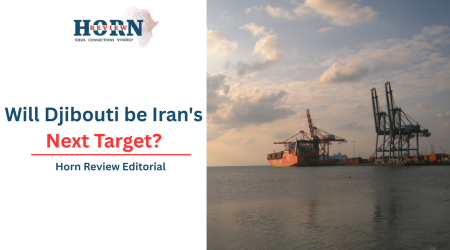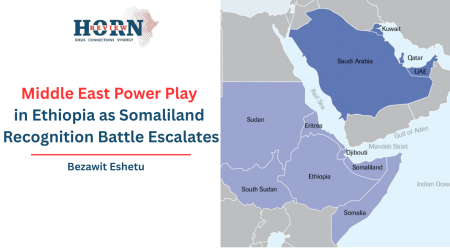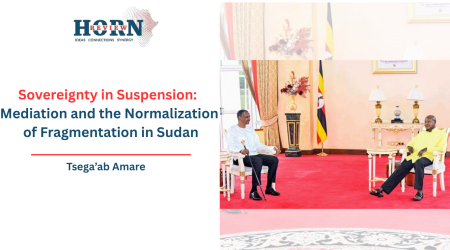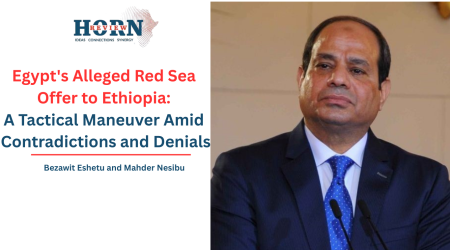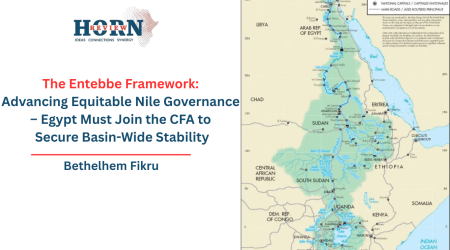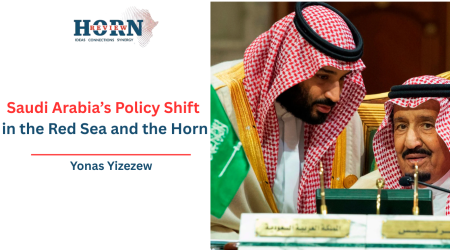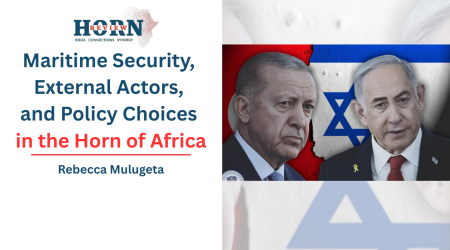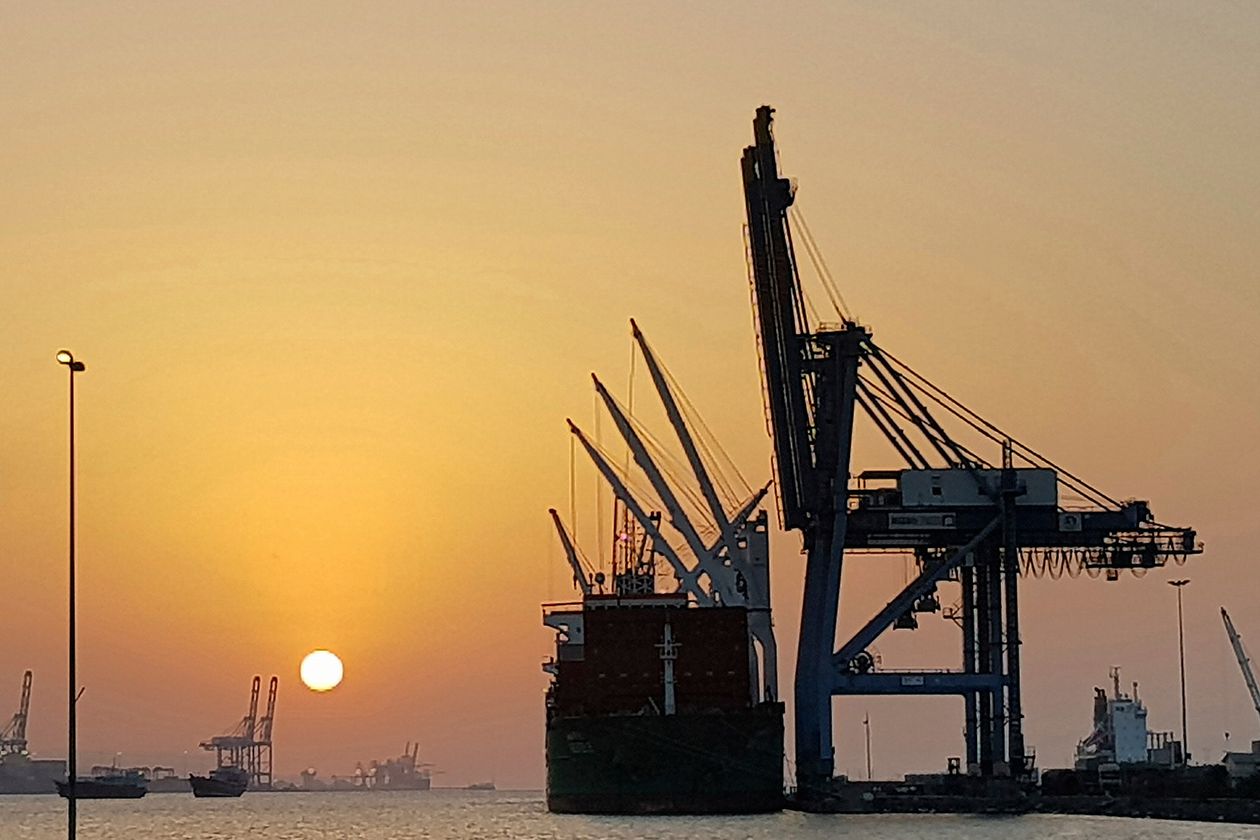
18
Mar
China Tightens Grip on Horn of Africa Ports: Boon or Threat to Sovereignty
The Horn of Africa occupies a pivotal position in the realm of global geopolitics. Its ports along the Red Sea and Gulf of Aden serve as critical arteries for international trade, linking Europe, Asia, and Africa. Over the past decade, China’s Belt and Road Initiative (BRI) has driven significant investments in these ports, particularly in Djibouti, raising questions about the implications of this expanding presence. Does China’s involvement in HoA ports signal a danger for superpower domination, particularly in the context of its rivalry with the United States? The Chinese investments in the region presents both economic benefits and risks. In addition, the Chinese presence has extensive implications for the security and autonomy of the Horn. The broader consequences of heightened foreign presence, include the potential for the region to become a battleground for economic and military competition.
China’s development Push
China’s investments have catalysed significant economic development in the HoA. This is particularly true for its port infrastructure projects. A standout example is the Doraleh Multi-Purpose Port in Djibouti, which has been in operation since 2017. The port was financed and constructed by Chinese entities including the China State Engineering Corporation. Notably, Ethiopia, due to being landlocked and lacking its own access, is heavily reliant on this port. Doraleh handles over 90 percent of Ethiopia’s vast trade flow. Since its completion, Djibouti’s GDP growth has averaged 6-7% annually, driven by increased trade volumes and job creation. The port employs hundreds directly and supports thousands more in related industries, such as logistics and transportation, positioning Djibouti as a regional trade hub. In Eritrea, China has invested in upgrading Massawa Port and enhancing trade capacity and connectivity.
Beyond Djibouti, China’s regional influence is evident in projects like Kenya’s Mombasa Port and Standard Gauge Railway (SGR). The SGR, funded by a $3.6 billion loan from China’s Exim Bank, has slashed transport times from Mombasa to Nairobi from 12 to 4 hours, reducing shipping costs by 30%. While not directly in the HoA, this project illustrates the potential benefits of Chinese financing, improved connectivity, trade efficiency, and economic growth, that could extend to ports like Lamu or Bagamoyo in Tanzania, where China has expressed interest. In the HoA, such investments promise to modernize infrastructure, attract foreign capital, and alleviate poverty in a region historically plagued by underdevelopment.
The ricks attached
China’s economic involvement, despite the obvious boost to development, carries significant risks. There is vast concern among analysts on debt sustainability and economic dependency. Djibouti’s external debt, for example has soared to $1.4 billion. Roughly 70% of which is owed to China. The International Monetary Fund (IMF) has flagged this as a high-risk situation, warning that repayment challenges could strain Djibouti’s fiscal stability. Kenya’s experience with the SGR offers a cautionary parallel: by 2023, its debt to China reached $6.3 billion, with semi-annual payments of $356 million consuming 80% of its debt servicing budget. These figures have led to high scepticism about the feasibility of Chinese cooperation and investments.
The spectre of “debt-trap diplomacy” looms large. Sri Lanka’s Hambantota Port, handed over to China on a 99-year lease after a debt default, exemplifies the potential consequences. While no such takeover has occurred in the HoA, Djibouti’s precarious debt levels suggest it could lose control over strategic assets like the Doraleh Port if it fails to meet repayment obligations. This financial vulnerability could deepen economic reliance on China, undermining the region’s ability to pursue independent development strategies.
Military Bases: Cooperation versus Conflict
China’s military presence in the HoA, most notably its naval base in Djibouti established in 2017, introduces both opportunities and risks. Located near the Doraleh Port, the base can house up to 10,000 troops and supports China’s efforts to secure its maritime trade routes. In Eritrea, while no formal Chinese base exists, speculation surrounds potential military cooperation at Massawa Port, given its Red Sea location and China’s interest in securing trade routes. Eritrea’s prior hosting of a UAE base in Assab suggests openness to such arrangements.
This presence has positive implications: China’s participation in anti-piracy operations in the Gulf of Aden has contributed to regional security, a shared interest with other powers like the United States, which maintains Camp Lemonnier nearby. Joint exercises or coordinated disaster response efforts could further enhance cooperation among foreign militaries in the region.
Yet, the military implications also carry significant downsides. China’s base signals its ambition to project power in the Indian Ocean and rival the long-established US supremacy. The proximity of Chinese and American bases, mere miles apart, heightens the risk of tension. Moreover, China’s interest in additional basing options, potentially in Kenya or Tanzania, suggests a broader strategy to militarize its port investments. Ports like Lamu, designed with dual-use capabilities, could serve both commercial and military purposes, aligning with China’s “overseas strategic strongpoint” doctrine.
The potential for cooperation exists, but competition appears more likely. The Horn of Africa’s strategic location makes it a prize in the US-China rivalry, and any misstep, whether a naval standoff or a dispute over port access, could spark conflict, drawing the Horn’s nations into a broader superpower struggle.
Dangers to Autonomy
China’s expanding presence poses a direct threat to HoA countries’ sovereignty over their ports and seacoasts. Djibouti’s heavy indebtedness to China raises the possibility that default could lead to the loss of control over the Doraleh Port, mirroring Sri Lanka’s fate. Even without a default, China’s operational influence is substantial: China Merchants Port Holdings has a 23.5% stake in the Djibouti Ports, giving Beijing significant sway over its trade policies and revenue streams. This arrangement limits Djibouti’s ability to make autonomous decisions about its infrastructure, tethering its economic future to Chinese priorities.
Opaque investment terms exacerbate this vulnerability. Unlike Western lenders, who often impose transparency conditions, China’s contracts are frequently shrouded in secrecy, fostering corruption and weakening governance. In Kenya, allegations of inflated SGR costs and kickbacks have eroded public trust, a pattern that could repeat in the Horn, where institutional capacity is often fragile. Over time, reliance on Chinese financing and expertise could transform Horn nations into economic satellites, diminishing their control over their most valuable assets.
A Potential Battleground
The Horn’s strategic importance amplifies the stakes of China’s presence, positioning the region as a potential battleground for superpower domination. Both China and the US view the HoA as critical to their global ambitions: China seeks to secure its trade routes and expand its military reach, while the US aims to counterbalance Beijing’s influence and maintain dominance in the Indian Ocean. This rivalry could unfold across multiple dimensions:
Both powers may vie for influence through investments and aid. China’s BRI projects compete with US-led initiatives like the Partnership for Global Infrastructure and Investment, potentially sparking a bidding war. While this could bring short-term gains, it risks subordinating HoA interests to foreign agendas. The concentration of bases in Djibouti and China’s pursuit of additional footholds such as in Eritrea heighten the risk of direct confrontation. Historical parallels, such as Cold War proxy wars in Africa, suggest that local splits could be exploited by external powers, fuelling proxy battles.
Increased foreign presence could exacerbate existing tensions, turning the HoA into a theatre for economic and military posturing. A cold conflict could escalate into real violence if strategic interests collide. The Cold War offers a sobering lesson: superpower rivalry in Africa often left nations economically crippled and politically fragmented. Today, the Horn risks a similar fate if it becomes a proxy for the US-China standoff, undermining its stability and development prospects.
Mitigating Risks
To navigate this complex landscape, HoA nations must adopt proactive strategies to preserve their autonomy and leverage their strategic position.
Over-reliance on China or the US increases vulnerability. Engaging alternative investors, like Japan, which has funded Mombasa Port upgrades, or the European Union, can dilute dependence and secure more favourable terms. Through organizations like the Intergovernmental Authority on Development (IGAD), countries can negotiate collectively with foreign powers, enhancing their leverage and resisting divide-and-conquer tactics.
Nations in the horn should exploit their ports’ value to secure concessions, such as debt relief or technology transfers, as Djibouti might with its basing agreements. Investing in domestic expertise for port management and infrastructure maintenance can lessen reliance on foreign operators, fostering self-sufficiency.
By Mahder Nesibu, Researcher,Horn Review

